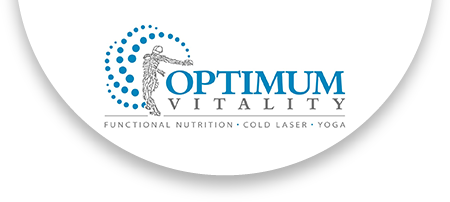The Hormonal Cascade and PMS
The Hormonal Cascade and PMS

We’ve all been there. Pants start to feel tight and suddenly you hate the world, binge eating chocolate, and don’t forget the cramps! Every month you’re down for the count, missing work, family life, maybe taking the crankies out on those you love. If this is normal for you, if you can’t imagine life without Midol, or if your spouse has started tracking your cycle as a way to prepare the family, read on.
Symptoms tell a story!
While the female body is intricate and it sometimes feels like the cards are stacked against us, there is a way out. We do not need to call in sick because we’re stuck in the fetal position in bed 12 times a year. These monthly PMS symptoms are exactly that, symptoms that something is off in your body. That something is probably a hormone imbalance. Your period can be a measure of how balanced your health and your hormones are, or if you currently fall into the cranky and crampy camp, it’s your body telling you something is off. If you don’t believe me, check out the sheer number of drug options in the PMS aisle of the drugstore. It’s this common! Keep in mind “common” doesn’t equate to “normal”.
Let’s look at the hormones responsible for this monthly shake down
Estrogen
This one probably jumped right to mind. It is the primary female sex hormone, and it’s responsible for the first half of your cycle, as well as your curves. High estrogen (relative to progesterone) means symptoms of PMS. As women, we have got to excrete excess estrogen. Say that five times fast! How? Healthy diet, optimal liver and gallbladder function, routine exercise, regular sex, and avoiding estrogen disruptors in our environment (see below).
Progesterone
Progesterone keeps your temperament cool, calm, and collected while raising your body temperature (metabolism). This is the primary hormone that makes sure you don’t retain fluid. You can see how progesterone fits into PMS already! The right amount of progesterone is key, too little or too much relative to estrogen will affect PMS symptoms, as well as potentially cause long-term reproductive issues.
The Thyroid
Estrogen dominance (too much in relation to progesterone) means less thyroid hormone available. To make matters worse, low thyroid function reduces progesterone, causing PMS symptoms. Seeing how they’re all connected? This is why it’s important to break the cycle of out-of-balance hormones.
The Adrenals & Cortisol
Cortisol is made by the adrenals. It’s considered a stress hormone. Cortisol is fascinating as it follows the circadian rhythm. It’s highest in the morning (and the reason we wake up) and lowest at night. However, when we’re stressed, or consequently when our adrenals are tired after burning the candle at both ends, cortisol will be consistently elevated. The higher your stress hormone cortisol is, the more it affects the estrogen/progesterone balance. Not good news for any female living in today’s modern, stressful world. The body steals from its progesterone supply when it is in high demand for cortisol AND high cortisol means progesterone receptors are blocked. So, you guessed it, PMS. Over time, this can cause estrogen dominance, with its own set of problems.
Prostaglandins
You got me, these aren’t hormones! Instead, prostaglandins are lipids that are normally involved with injury or illness. The uterus builds up prostaglandins the week before your period, which is where your cramps are coming from. They are released right around the start of bleeding, which explains why the cramps tend to ease as well. A lack of magnesium can increase prostaglandins and cause even more painful cramps. By the way, did you know that the layers of uterine muscle make up the strongest muscle in your body (useful for, say, pushing a small human out)? That means those cramps are real, my friend, so don’t feel ashamed. Half of the world can commiserate with you on this.
So, what’s a girl to do?
You got this!
First, look at your exercise routine. Is it nonexistent? Consider adding short bursts of exercise to your week. This will help increase circulation and tone down the inflammation in your body. If you’re an avid exerciser, take a break and see how your body responds.
I think it’s safe to say that we could all do with less stress in our life. Actively trying to decrease stress will benefit your whole body, but especially your hormones. Prioritize sleep, downtime, and stay away from caffeine and alcohol.
Did I mention sleep? Sleep more. Going to bed and waking within the same hour every day is the most beneficial thing you can do for improving sleep patterns.
Your gut orchestrates the creation and use of hormones, so balancing your gut microbiome will go a long way when sorting out hormones. See this blog post to learn more about your gut.
Cut down or try to eliminate sugar from your diet, as sugar causes inflammation in your gut (see above). This is always much easier said than done, so be gentle with yourself as you taper your sugar intake. As you are reaching for a cupcake, consider tuning into your body. What are you really hungry for? This doesn’t have to be food-related, you could be craving connection or rest. Alternatively, if you do treat yourself to a sugary snack, enjoy the heck out of it. Eat it slowly to savor each bite, and then, move on with your life. Added guilt is not conducive to kicking a sugar habit.
Craving chocolate? You might need magnesium! Magnesium helps prevent some symptoms of PMS.
Keeping a gratitude journal or simply expressing a few things you are grateful for at the end of the day goes a long way to de-stress and calm your body and mind. Also, consider incorporating mindfulness or meditation practices into your day, if you haven’t already. If you struggle to remember to take time for these practices, find an app that will remind you to check in throughout the day or take 5-10 minutes for yourself.
Chemicals that disrupt the estrogen signals in your body are aptly called estrogen disruptors, and they are unfortunately prevalent in our world today. Make sure your food and beauty products are as clean as you can afford, filter your water with a high-quality, trusted filter, and swap your plastic containers for alternatives like glass, stainless steel, silicone, bamboo, etc. (especially in the kitchen).
Just as there are lots of options for PMS pain relief, there are a variety of options when it comes to vitamins, supplements, and herbs to balance hormones. Knowing exactly where your hormones are to begin with and what is needed can be extremely tricky, so seeing a health practitioner to help you sort out what supplements (if any) are needed is recommended.
With lifestyle changes and shifting your perspective on what is “normal”, a consistent, chill period is possible.
Don’t settle for cranky and crampy!


